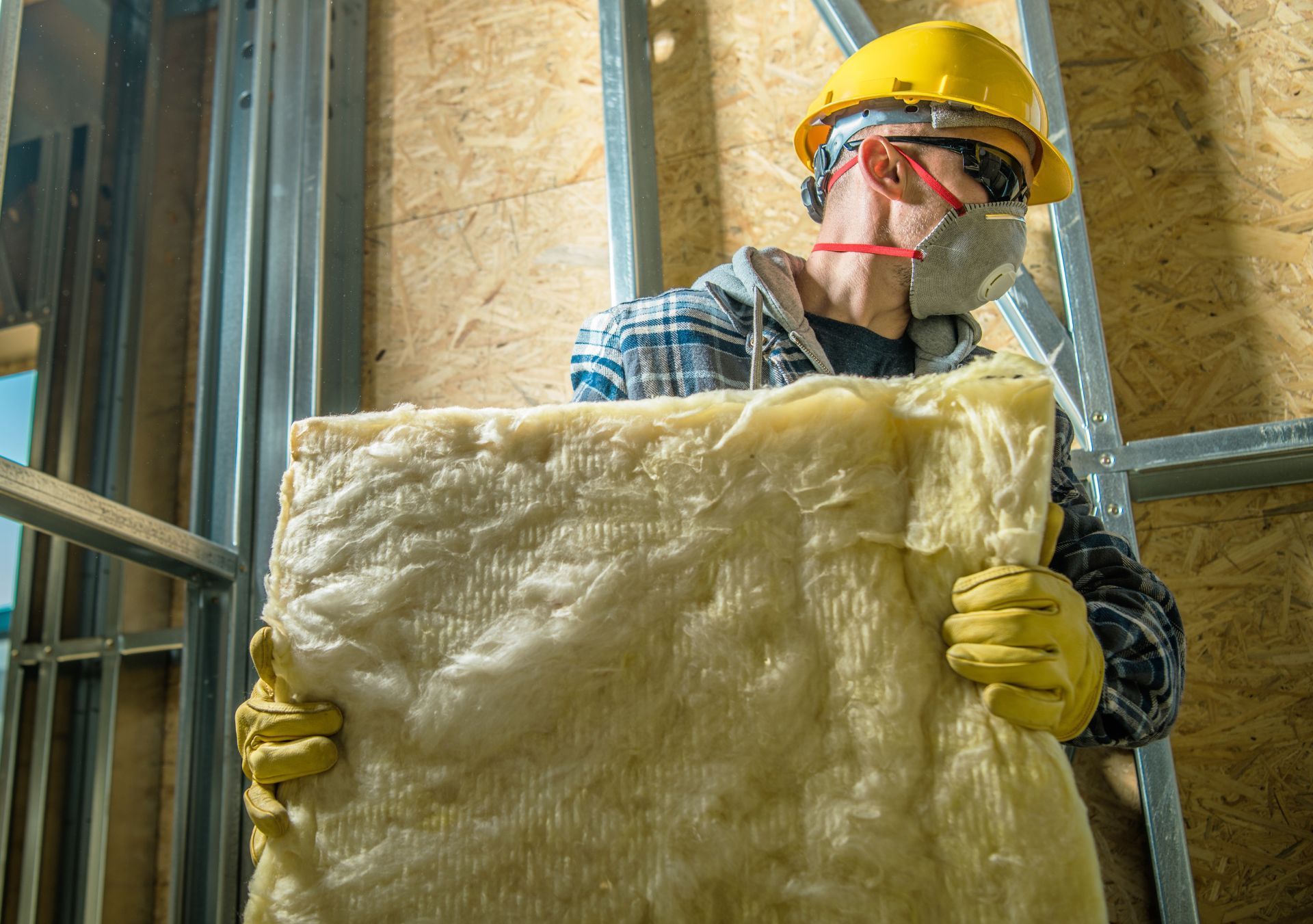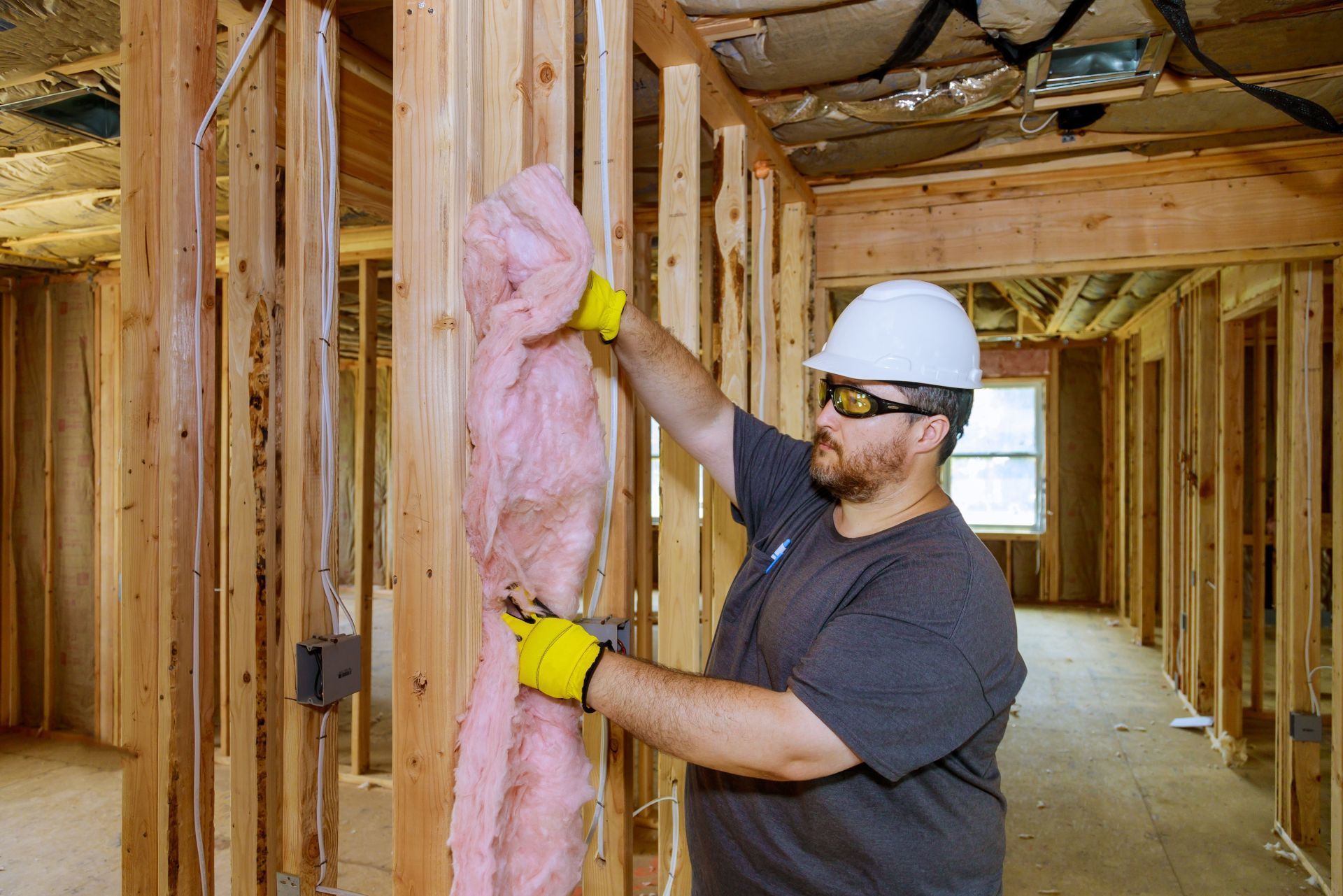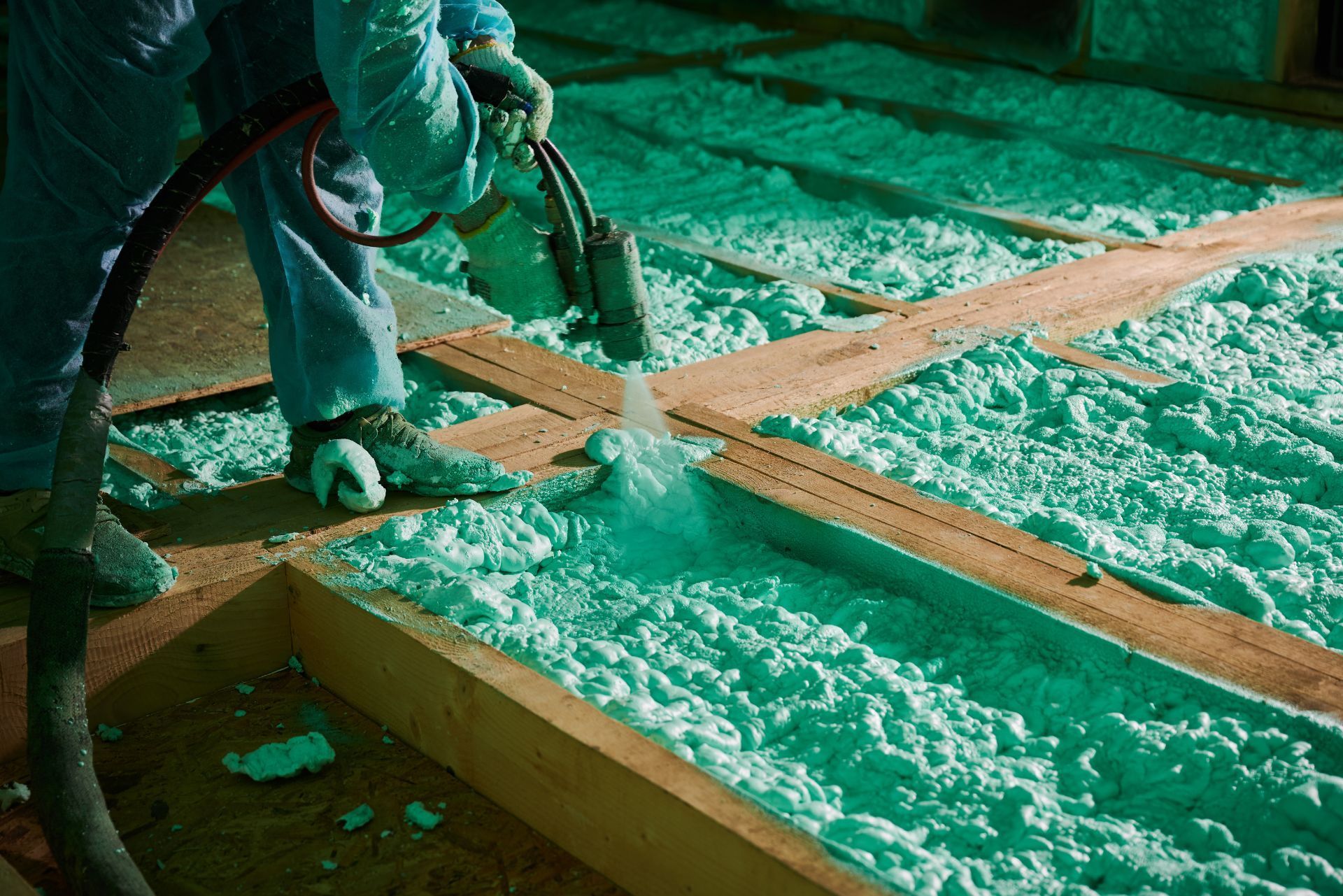Arizona Insulation Contractor Insurance
See How We're Different:
or Call Us:(480) 526-3222

Most Common Business Policies
Index
Contact Us
Insulation contractors play a vital role in the construction and renovation industry in Arizona. They ensure that homes and commercial buildings are energy-efficient, comfortable, and safe. However, like any other profession, insulation contractors face various risks that can lead to financial losses. This is where insurance becomes essential. Understanding the different types of insurance available to insulation contractors in Arizona is crucial for protecting both the business and its employees. This article will explore everything you need to know about Arizona insulation contractor insurance.
Understanding the Importance of Insurance for Insulation Contractors
Insurance serves as a safety net for insulation contractors, safeguarding them from potential liabilities and unforeseen events. In a state like Arizona, where construction activities are prevalent, having the right insurance coverage can mean the difference between a thriving business and financial ruin.
Types of Risks Faced by Insulation Contractors
Insulation contractors encounter various risks on the job site. These can include accidents, property damage, and even legal disputes. For instance, a worker may suffer an injury while installing insulation, leading to medical expenses and potential lawsuits. Additionally, if insulation materials damage a client's property, the contractor could be held liable for repairs.
Furthermore, Arizona's unique climate can pose additional challenges. Extreme temperatures and dust storms can affect the working conditions, leading to increased risks. Therefore, having comprehensive insurance coverage is not just a legal requirement; it is a crucial aspect of running a successful insulation contracting business. Moreover, the nature of insulation work often involves handling hazardous materials, such as spray foam or fiberglass, which can pose health risks if not managed properly. This adds another layer of complexity to the risks insulation contractors face, making adequate insurance even more essential.
Legal Requirements for Insurance in Arizona
In Arizona, insulation contractors are required to carry specific types of insurance to comply with state regulations. These requirements are designed to protect both the contractors and their clients. Generally, contractors must have general liability insurance, workers' compensation insurance, and, in some cases, commercial auto insurance.
General liability insurance protects against claims of bodily injury or property damage that may occur during the course of work. Workers' compensation insurance is mandatory for businesses with employees, covering medical expenses and lost wages for workers injured on the job. Commercial auto insurance is necessary if the contractor uses vehicles for business purposes, ensuring coverage for accidents involving company vehicles. Additionally, contractors may also consider professional liability insurance, which can cover claims arising from mistakes or negligence in the services provided. This type of coverage can be particularly beneficial in protecting against the financial fallout of disputes related to project specifications or client expectations, further securing the contractor's business interests in a competitive market.

Types of Insurance Coverage for Insulation Contractors
There are several types of insurance coverage that insulation contractors should consider. Each type serves a different purpose and addresses specific risks associated with the industry.
General Liability Insurance
General liability insurance is one of the most critical types of coverage for insulation contractors. It protects against claims arising from accidents, such as injuries to clients or damage to their property. For example, if a worker accidentally spills insulation material on a client's floor, general liability insurance can cover the costs of cleanup and repairs.
This insurance not only protects the contractor financially but also enhances their credibility. Clients are more likely to hire a contractor who has adequate insurance coverage, as it demonstrates professionalism and a commitment to safety. Additionally, in a competitive market, having general liability insurance can be a deciding factor for potential clients who are weighing their options. It provides peace of mind, knowing that they are working with a responsible contractor who prioritizes risk management and accountability.
Workers' Compensation Insurance
Workers' compensation insurance is essential for insulation contractors with employees. This coverage provides financial support to workers who are injured on the job, covering medical expenses and a portion of lost wages. In Arizona, this insurance is mandatory for businesses with one or more employees.
Having workers' compensation insurance not only protects employees but also shields the contractor from potential lawsuits related to workplace injuries. Without this coverage, a contractor could face significant financial liabilities if an employee is injured while working. Moreover, fostering a safe work environment is critical in the insulation industry, where workers may be exposed to hazardous materials and conditions. By investing in workers' compensation insurance, contractors also signal to their employees that their health and safety are top priorities, which can lead to higher morale and productivity on the job site.
Commercial Auto Insurance
If insulation contractors use vehicles for their business operations, commercial auto insurance is necessary. This coverage protects against damages resulting from accidents involving company vehicles. It can cover repair costs, medical expenses, and liability claims arising from accidents.
In Arizona, where contractors often travel between job sites, having commercial auto insurance is crucial. It ensures that both the contractor and their employees are protected while on the road, reducing the risk of financial loss due to vehicle-related incidents. Furthermore, commercial auto insurance can also cover equipment and materials transported in the vehicle, safeguarding valuable assets that are essential for completing insulation projects. As insulation contractors frequently carry specialized tools and materials, having this coverage not only protects their vehicles but also ensures that they can continue operations without significant interruptions in the event of an accident.
While general liability, workers' compensation, and commercial auto insurance are fundamental, insulation contractors may also consider additional coverage options to further protect their business.
Professional Liability Insurance
Professional liability insurance, also known as errors and omissions insurance, is beneficial for insulation contractors who provide consulting or design services. This coverage protects against claims of negligence or inadequate work that may result in financial losses for clients.
For instance, if a contractor's insulation installation fails to meet building codes, leading to energy inefficiency or safety hazards, professional liability insurance can cover legal fees and settlements. This type of insurance is especially important for contractors who engage in project management or design work. Moreover, as energy efficiency regulations become increasingly stringent, the risk of non-compliance grows. Contractors who offer energy audits or recommendations on insulation materials may find themselves facing claims if their advice leads to unsatisfactory results. Professional liability insurance thus serves as a crucial safety net, allowing contractors to operate with confidence in their expertise.
Equipment and Tools Insurance
Insulation contractors rely on various tools and equipment to perform their jobs effectively. Equipment and tools insurance provides coverage for loss, theft, or damage to these essential items. This insurance can be particularly valuable for contractors who invest significantly in specialized equipment.
In Arizona, where job sites can be remote, having equipment insurance ensures that contractors can quickly replace lost or damaged tools, minimizing downtime and maintaining productivity. Furthermore, many contractors utilize advanced technology, such as thermal imaging cameras and insulation blowers, which can be costly to replace. Equipment and tools insurance not only covers the physical items but can also extend to rental costs if contractors need to temporarily lease equipment while repairs or replacements are made. This comprehensive coverage allows insulation contractors to focus on their work without the looming worry of unexpected financial burdens due to equipment loss.
Business Interruption Insurance
Business interruption insurance is designed to protect contractors from lost income due to unforeseen events that disrupt their operations. For example, if a contractor's office is damaged by a fire, this insurance can cover lost revenue during the repair period.
In a competitive market like Arizona, maintaining cash flow is crucial for insulation contractors. Business interruption insurance can provide peace of mind, allowing contractors to focus on rebuilding their business without the added stress of financial instability. Additionally, this type of insurance can cover ongoing expenses, such as payroll and rent, even when business activities are halted. In the event of a natural disaster, such as a monsoon or severe storm, contractors may find their projects delayed or canceled altogether. Business interruption insurance can help mitigate the financial impact of such disruptions, enabling contractors to navigate through challenging times while keeping their workforce intact and ready to resume operations as soon as conditions improve.
Choosing the Right Insurance Provider
Selecting the right insurance provider is a critical step in securing adequate coverage for insulation contractors. The right provider can offer tailored policies that meet specific business needs and industry requirements.
Researching Insurance Companies
When searching for an insurance provider, it is essential to conduct thorough research. Look for companies that specialize in construction or contractor insurance, as they will have a better understanding of the unique risks involved. Reading customer reviews and testimonials can also provide insights into the provider's reputation and reliability.
Additionally, consider reaching out to other insulation contractors for recommendations. Networking within the industry can lead to valuable insights and help identify reputable insurance companies that offer competitive rates. Joining trade associations or forums can also facilitate connections with peers who may have firsthand experience with different insurers, providing a wealth of information that can guide your decision.
Assessing Coverage Options
Once potential providers have been identified, it is crucial to assess their coverage options. Compare policies to ensure they provide adequate protection for the specific risks faced by insulation contractors. Pay attention to coverage limits, deductibles, and any exclusions that may apply.
It may also be beneficial to consult with an insurance broker who specializes in contractor insurance. Brokers can help navigate the complexities of insurance policies and find the best coverage options tailored to the contractor's needs. They can also provide insights into emerging trends in the industry, such as new regulations or safety standards, which may influence the types of coverage that are most relevant.
Understanding Costs and Premiums
The cost of insurance premiums can vary significantly based on several factors, including the contractor's business size, location, and the types of coverage selected. Insulation contractors should obtain quotes from multiple providers to compare costs and ensure they are getting the best value for their coverage.
It is important to remember that while cost is a significant factor, it should not be the sole consideration. The quality of coverage and the provider's reputation should also play a crucial role in the decision-making process. Additionally, many providers offer discounts for bundling policies or for maintaining a good safety record, which can further affect overall costs. Understanding these nuances can help contractors make informed decisions that balance affordability with comprehensive protection.

Common Misconceptions About Contractor Insurance
There are several misconceptions surrounding contractor insurance that can lead to misunderstandings and inadequate coverage. Addressing these misconceptions is essential for insulation contractors to make informed decisions about their insurance needs.
Insurance is Optional for Contractors
One of the most common misconceptions is that insurance is optional for contractors. In reality, many types of insurance are legally required for contractors operating in Arizona. Failing to obtain the necessary coverage can result in legal penalties and financial liabilities.
Moreover, having insurance is not just about compliance; it is a crucial aspect of protecting the business and its assets. Contractors who operate without insurance expose themselves to significant risks that could jeopardize their livelihood.
All Insurance Policies are the Same
Another misconception is that all insurance policies offer the same coverage. In reality, policies can vary widely in terms of coverage limits, exclusions, and conditions. It is essential for insulation contractors to carefully review policy details and understand what is and isn’t covered.
Contractors should also be aware that cheaper policies may not provide adequate protection. It is crucial to strike a balance between cost and comprehensive coverage to ensure the business is well-protected.
Insurance Claims are Always Denied
Many contractors believe that insurance claims are often denied, leading to a reluctance to file claims when necessary. While it is true that some claims may be denied due to policy exclusions or lack of documentation, many legitimate claims are approved.
To increase the likelihood of a successful claim, contractors should maintain thorough records of their work, including contracts, invoices, and documentation of any incidents. Clear communication with the insurance provider can also help facilitate the claims process.
The Claims Process for Insulation Contractors
Understanding the claims process is essential for insulation contractors to navigate any potential issues that may arise. Knowing how to file a claim and what to expect can help contractors respond effectively to incidents.
Steps to File a Claim
When an incident occurs that may require filing a claim, the first step is to report it to the insurance provider as soon as possible. Most insurance companies have specific protocols for reporting claims, which may include filling out a claim form and providing supporting documentation.
Contractors should gather all relevant information, including photographs, witness statements, and any other evidence related to the incident. This documentation will help support the claim and provide a clear picture of what occurred.
What to Expect During the Claims Process
After a claim is filed, the insurance company will typically assign an adjuster to investigate the incident. The adjuster will review the documentation provided and may contact the contractor for additional information. This process can take time, so patience is essential.
Once the investigation is complete, the insurance company will determine whether the claim is valid and what compensation, if any, will be provided. Contractors should be prepared for the possibility of negotiation, as the initial offer may not always reflect the full extent of damages incurred.
Appealing a Denied Claim
If a claim is denied, contractors have the right to appeal the decision. The appeals process typically involves submitting additional documentation or evidence to support the claim. It is crucial to understand the reasons for the denial and address any concerns raised by the insurance company.
Contractors may also consider seeking legal advice if they believe their claim was unjustly denied. An attorney with experience in insurance claims can provide guidance and help navigate the appeals process effectively.
Conclusion
Insurance is a fundamental aspect of running a successful insulation contracting business in Arizona. By understanding the various types of insurance coverage available, the legal requirements, and the claims process, insulation contractors can protect their businesses from potential risks and liabilities.
Choosing the right insurance provider and policy is crucial for ensuring comprehensive coverage tailored to the unique needs of insulation contractors. By dispelling common misconceptions and being proactive about insurance needs, contractors can focus on what they do best—providing quality insulation services to their clients.
In a competitive market, having the right insurance not only safeguards the business but also enhances its reputation. Clients are more likely to trust and hire contractors who prioritize safety and professionalism through adequate insurance coverage. Ultimately, investing in the right insurance is an investment in the future success and sustainability of the insulation contracting business.
